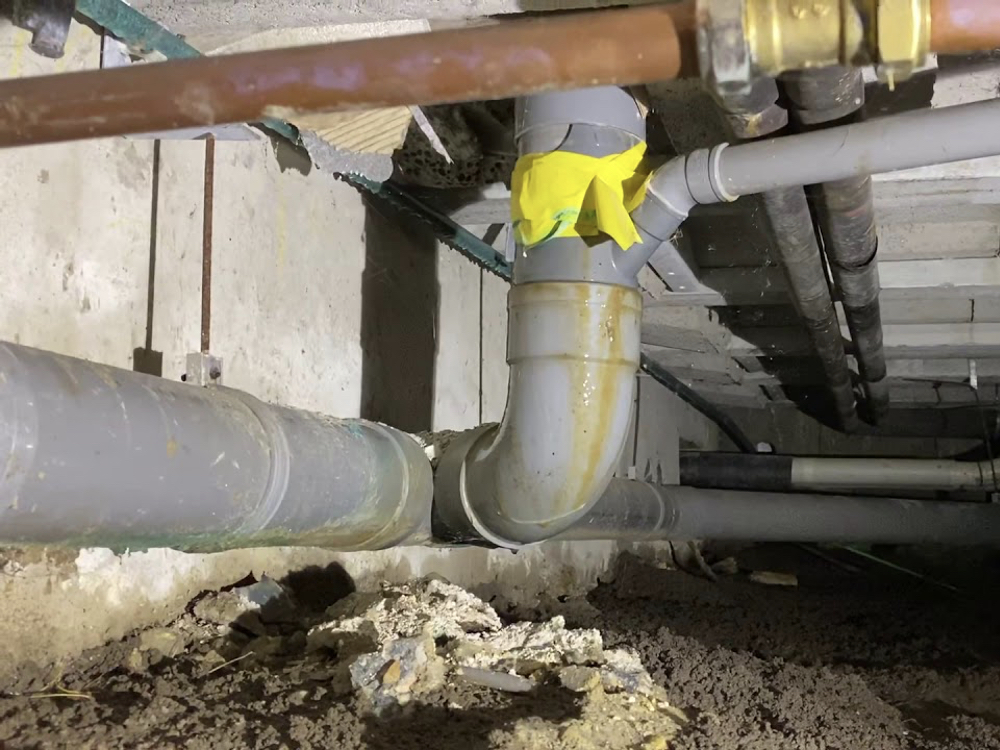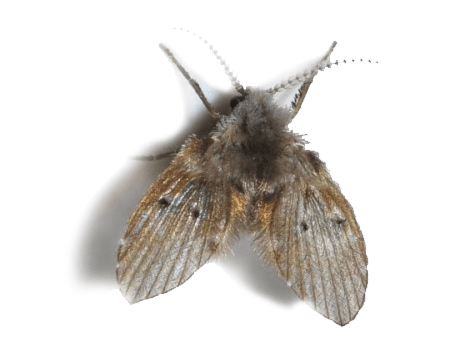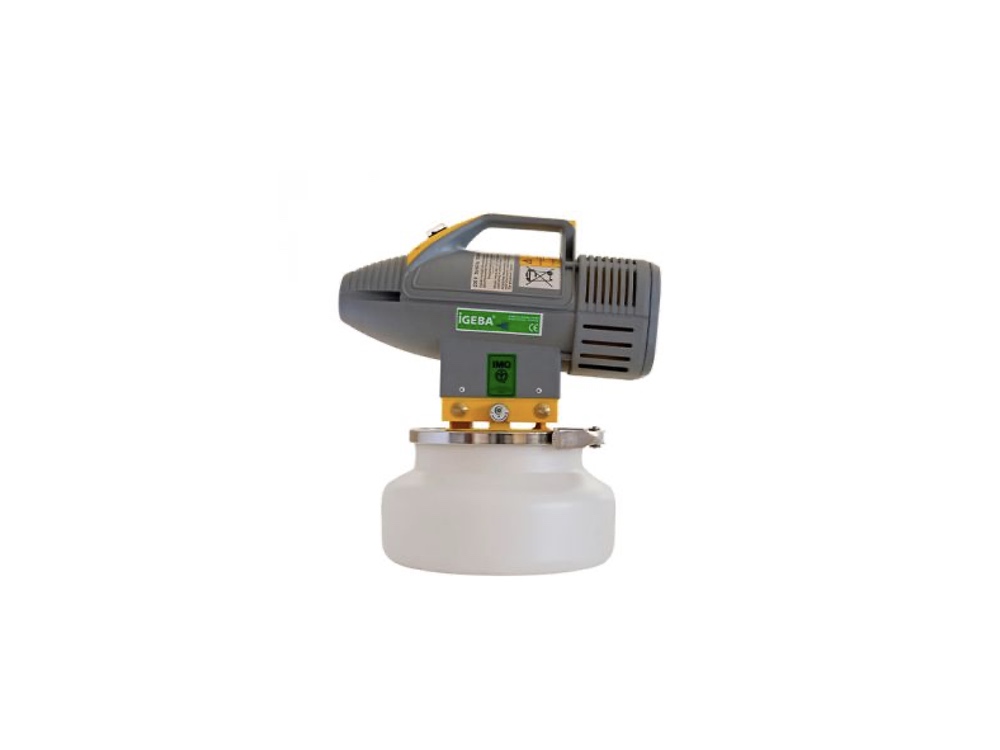Are you experiencing small, black flies with heart-shaped wings indoors? If so, you may be dealing with drain flies (Psychodidae). These critters, also called sink flies or moth flies, are common in bathrooms, sewers, hallways and toilets. We can help control drain flies.

If you find the drain fly in your home, it means that there is a problem with the sewer system. It may be that there is a leak in the sewer system causing a sludge formation in which the drain fly deposits eggs. Therefore, the sewage problem will have to be addressed first in order to permanently control the drain flies. Drain flies can spread pathogens and bacteria because these critters often live on decaying food waste or near sewers and all the flora and fauna that live around them. These bacteria can be very harmful to (vulnerable) people and children. The drain fly does not sting and fortunately can only pose an indirect danger, but it can still be a risk in places that need to be kept hygienic (such as a kitchen).
The usefulness of drain flies is in processing organic material, but as pests they remain very annoying. You may find no or few mosquitoes in places where there are drain flies, as they are not usually found in each other’s habitats.

Drain flies belong to the two-winged species and therefore fall under the species mosquitoes, but they do have hairy wings, just like certain species of moths. A moth mosquito grows to about 4 millimeters long and are not particularly good fliers and prefer not to do so, so you will often see them walking around or making only short flights.
Drain flies lay small brown or cream-colored eggs in large numbers: sometimes up to 200 eggs at a time. When the larvae hatch, they look like little white worms with dark ends. The larvae are about 9 mm and pupate within 20 – 40 hours, after which an adult drain fly is developed. This relatively short stage of development means that drain flies can reproduce and develop at lightning speed.
Therefore, should you suffer from drain flies, it does not have to be long before there is an infestation of drain flies.

Because adult drain flies lay their eggs in organic matter in damp places, you will find them here in large numbers. The larvae feed on decaying elements, bacteria and fungi found there. Think of sinks where a lot of food is flushed through or pipes with little flow. drain flies can also often be found in cracks or corners of grates.
Protect Pest Control often finds the source of drain fly infestations in plumbing drains, toilets, gutters, manure piles or cesspools. The best habitat for a drain fly is on a fermenting surface with a warm temperature. That’s why most customers call to have these critters controlled even during the hot summer months. The rate at which moth bugs develop is often very fast then.

Drain flies love wet environments and therefore find themselves in and around sewers, bathrooms and toilets. Even a shelter where a layer of water can be found and no one visits often is an ideal habitat for drain flies.
Drain flies can attract light, which is why we recommend keeping your windows and doors closed during evenings in the summer months. That way, these critters cannot fly or crawl inside.
Protect Pest Control can control the infestation all at once and ensure that all drain flies are dealt with, so you don’t get caught up in a lengthy pest control process. In every situation, we provide an appropriate customized solution, taking into account your environment.
Contact us now to schedule an on-site appointment or for advice and more information.
Protect Pest Control is a professional pest control company and uses safe and successful methods to control drain flies. We commonly use a pressurized spray. The pesticides we use have an after-effect, so any drain flies that come into contact with the agents afterwards are also controlled.
Of course, we use the safest methods of control, for both you and your family, and your pets.
Protect Pest Control offers you an appropriate custom solution, and of course an appointment at your convenience.
We have years of experience as a pest control company and are certified. In addition, we apply an environmentally conscious control as much as possible. Protect Pest Control will discuss with you the number of treatments needed to achieve the desired result and will also give you advice on prevention after the control.
